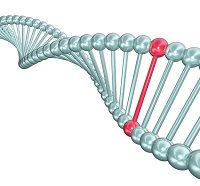Article
Genetic Biomarker Associated with Psoriatic Arthritis, But Not Psoriasis
Author(s):
Although psoriatic arthritis (PsA) only targets those diagnosed with psoriasis, a genetic factor has been discovered that only pinpoints the former.

Although psoriatic arthritis (PsA) only targets those diagnosed with psoriasis, a genetic factor has been discovered that only pinpoints the former.
Led by John Bowes, PhD, a British study determined the PTPN22 gene biomarker through genotype data consisting of 13 single nucleotide polymorphisms (SNPs) in 1,177 cases and 2,155 controls gathered from Immunochip. Many of the genetic components already linked to PsA are also seen in psoriasis, therefore, this separate factor finding is valuable.
“The genetic factors contributing to the susceptibility of PsA are not fully understood, but PsA is estimated to have a larger genetic component than psoriasis,” the authors informed. “This suggests a substantial difference in the genetic architecture of the two diseases with a heavier genetic burden for PsA.”
The Arthritis Research UK Centre for Epidemiology researchers went about identifying the association in multiple parts. Documented in the Annals of the Rheumatic Diseases, they noted that male and female samples were compared separately and all subjects were European.
Using the largest psoriasis study available (10,588 psoriasis cases and 22,806 controls), the team evaluated the disease’s association to PsA with data from WTCCC2.
“Second, we compared effect estimates in PsA to psoriasis using multinomial logistic regression using genotype data for PsA cases and controls from Immunochip and psoriasis genotype data from WTCCC2 performed in State,” the study explained.
The final step consisted of comparing the PsA and psoriasis genotypes to one another. The research proved that there is a direct correlation between the PTPN22 gene and PsA.
Further evaluation showed that men were slightly more effected by the biomarker than women. In addition, Italian population included in the study had a lack of rs2476601 association due to a noteworthy lower minor allele frequency (MAF).
“For the first time, we report genome-wide significant association of PTPN22(rs2476601) to PsA susceptibility, but no evidence for association to psoriasis.”





